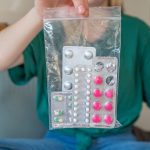Your medicine cabinet could be fueling a superbug crisis
 (NaturalHealth365) We are living in an age of medical breakthroughs, yet the health of our society is crumbling. Rates of chronic disease, heart failure, obesity, and depression have never been higher. Billions are poured into healthcare every year, yet people are sicker, not healthier. What went wrong? The uncomfortable truth is that our healthcare system is built on a foundation that benefits industries – not patients.
(NaturalHealth365) We are living in an age of medical breakthroughs, yet the health of our society is crumbling. Rates of chronic disease, heart failure, obesity, and depression have never been higher. Billions are poured into healthcare every year, yet people are sicker, not healthier. What went wrong? The uncomfortable truth is that our healthcare system is built on a foundation that benefits industries – not patients.
Even more alarming, the very medications designed to manage chronic conditions may be making the problem worse: common, everyday drugs are silently fueling antibiotic resistance. Non-antibiotic medications, from pain relievers to statins, can increase bacterial mutations, creating pathogens that are stronger and harder to kill, accelerating the rise of superbugs.
The collateral damage of overmedication
This pharmaceutical obsession has triggered collateral damage on a global scale. Antibiotic resistance is spiraling into one of the most serious public health crises of our time – and the pipeline for new antibiotics is almost empty.
Shockingly, a recent study from the University of South Australia, published in npj Antimicrobials and Resistance, reveals that common over-the-counter painkillers may be fueling the problem. Researchers found that ibuprofen and acetaminophen, when combined with the antibiotic ciprofloxacin, turbocharged genetic mutations in Escherichia coli (E. coli), making the bacteria far more resistant – not just to ciprofloxacin, but to multiple other antibiotics.
Even more alarming, the effect skyrocketed when both painkillers were taken together. These findings expose a hidden danger: everyday medications, considered safe and routine, may be quietly arming bacteria with the tools to outsmart antibiotics, and no one is sounding the alarm.
A natural way forward
This isn’t about rejecting medicine – it’s about reclaiming control over our health before superbugs and chronic disease take hold. Pharmaceuticals have their place, but they should never be the default. Real protection starts with strengthening your immune system and reducing the factors that fuel resistance.
Focus on what works: clean, organic whole foods rich in nutrients, regular movement, adequate sleep, and effective stress management. These simple, evidence-backed strategies not only reduce the risk of infection but also help your body fight pathogens naturally, decreasing reliance on antibiotics and other medications.
Be mindful of the drugs you take: even common painkillers and long-term prescriptions can inadvertently weaken immunity or drive bacterial resistance. Ask questions, track your medications, and work with knowledgeable holistic practitioners to minimize unnecessary exposure.
Finally, demand accountability from the industries profiting from illness. Prevention should always be the priority, nutrition must be recognized as a form of medicine, and immune health should be treated as a cornerstone of overall wellness.
The more proactive we are, the less we hand control over to the pharmaceutical system – and the better our chances against the superbugs of tomorrow.
The truth we can’t ignore
The truth is simple: our reliance on pharmaceuticals is fueling more than just chronic illness – it’s weakening our defenses and giving rise to superbugs. Everyday medications, from common painkillers to long-term prescriptions, can unintentionally undermine the immune system while accelerating antibiotic resistance. The very system designed to “protect” us often leaves us more vulnerable, creating a cycle of dependence and risk.
But knowledge is power. What if the immune health strategies used by 34 leading scientists, researchers, doctors, and nutritionists were right at your fingertips? Jonathan Landsman’s Immune Defense Summit provides you with access to decades of cutting-edge research, practical solutions, and actionable steps to strengthen your immunity naturally.
It’s time to break free from the pharmaceutical trap, reclaim your health, and equip yourself with the tools to protect your immune system and the health of those you love.
Sources for this article include:



